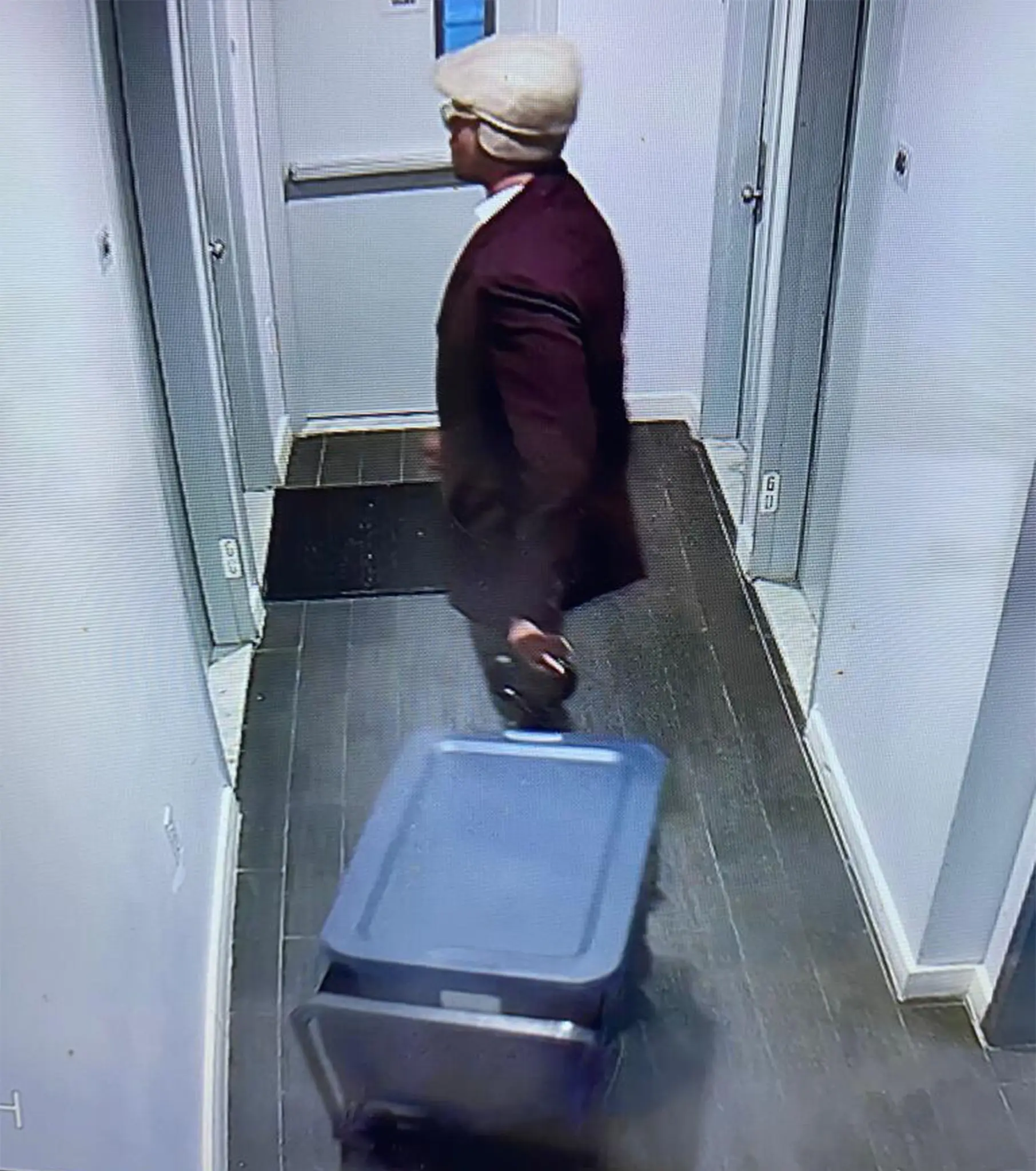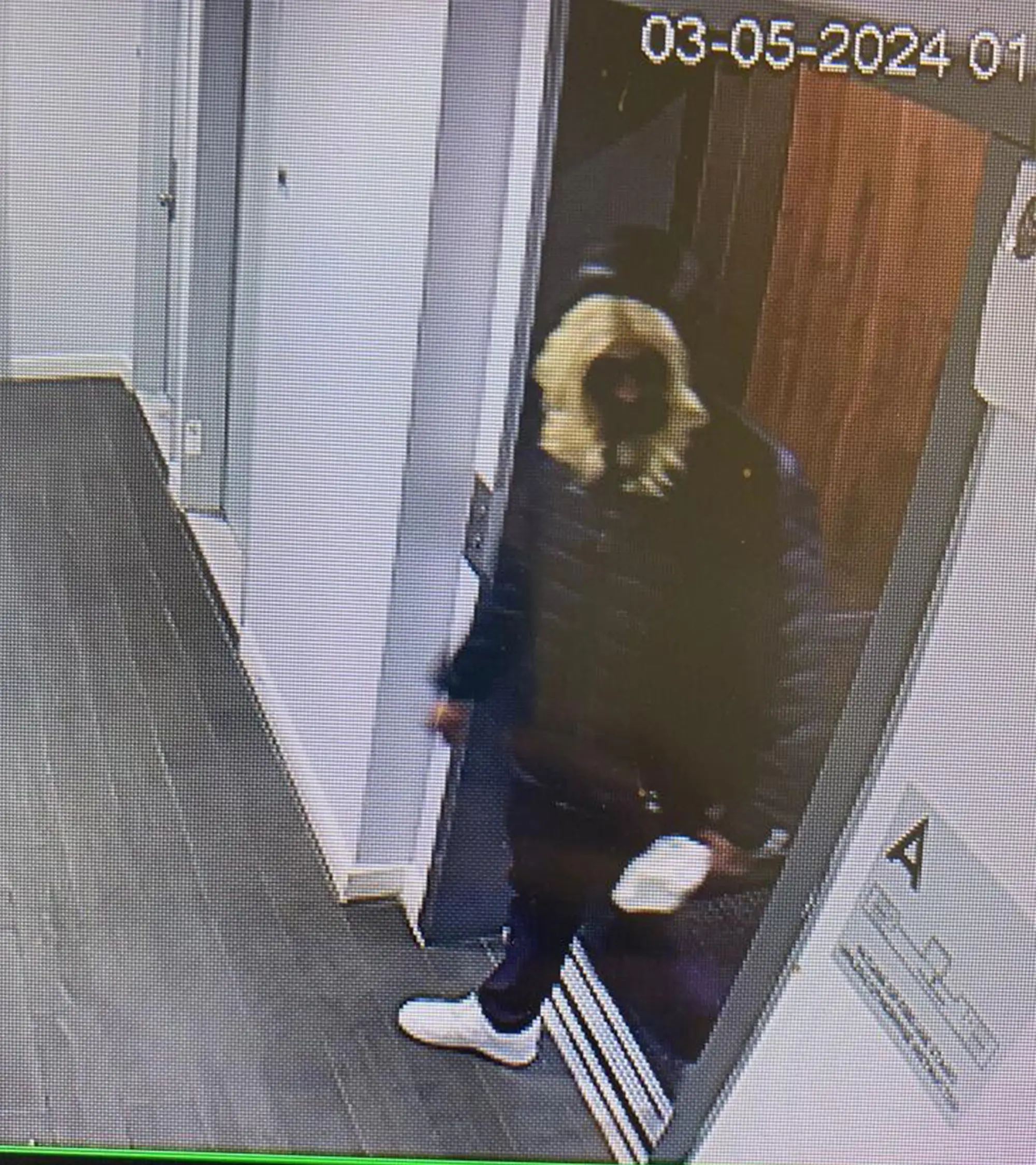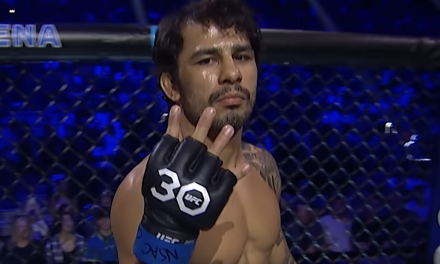From the Joe Rogan Podcast to Murder…
In a shocking turn of events, justice reform advocate Sheldon Johnson, 48, who appeared on the widely acclaimed Joe Rogan Experience podcast just last month, has been charged with murder following the discovery of a severed head in a Bronx apartment.
In a shocking turn of events, justice reform advocate Sheldon Johnson, 48, who appeared on the widely acclaimed Joe Rogan Experience podcast just last month, has been charged with murder following the discovery of a severed head in a Bronx apartment.

Johnson, a former convict known for his association with District Attorney Alvin Bragg and his advocacy for justice reform, shared his narrative of redemption on the Joe Rogan podcast aired on February 1. Detailing his endeavor to turn his life around after serving 50 years for two violent robberies, Johnson captivated Rogan’s audience with tales of his past involvement in prison gangs, emphasizing his determination to leave that life behind.
“I’ve been doing bad for so long I’m going to try to do something good, if all else fails I can go back to doing something bad,” Johnson asserted during the podcast, reflecting on his past and his aspirations for the future.
However, merely a month after his appearance on the podcast, Johnson finds himself facing serious charges in connection with a dismembered body discovered in a bin, along with the severed head of victim Colin Small, 44, found in a freezer.
During his conversation with Rogan, Johnson openly acknowledged his past transgressions, including drug dealing and violent robberies, actions which led a judge to deem him “a menace to society.” Recounting incidents from the 1990s where he participated in armed robberies resulting in physical harm to victims, Johnson’s candor shed light on his turbulent past.
Despite his criminal history, Johnson has since dedicated himself to advocating for justice reform, working with at-risk youth at the Queens Defenders in New York. He spoke passionately about his experiences in prison, including periods of solitary confinement, which prompted introspection and a desire for change.
“I was really looking at myself and reevaluating and thinking, ‘what the f*** are you doing’,” Johnson admitted, reflecting on his time in solitary confinement. “I remember thinking, ‘what are you going to do? Can you live out the next 48 years like this?’ I said I couldn’t do it.”

Johnson’s swift fall from grace serves as a stark reminder of the complexities of personal transformation and the challenges inherent in navigating the path to redemption. As the legal proceedings unfold, the case of Sheldon Johnson continues to captivate public attention, prompting reflection on issues of justice, rehabilitation, and the possibility of genuine reform.
Johnson, a former convict known for his association with District Attorney Alvin Bragg and his advocacy for justice reform, shared his narrative of redemption on the Joe Rogan podcast aired on February 1. Detailing his endeavor to turn his life around after serving 50 years for two violent robberies, Johnson captivated Rogan’s audience with tales of his past involvement in prison gangs, emphasizing his determination to leave that life behind.
“I’ve been doing bad for so long I’m going to try to do something good, if all else fails I can go back to doing something bad,” Johnson asserted during the podcast, reflecting on his past and his aspirations for the future.
However, merely a month after his appearance on the podcast, Johnson finds himself facing serious charges in connection with a dismembered body discovered in a bin, along with the severed head of victim Colin Small, 44, found in a freezer.
During his conversation with Rogan, Johnson openly acknowledged his past transgressions, including drug dealing and violent robberies, actions which led a judge to deem him “a menace to society.” Recounting incidents from the 1990s where he participated in armed robberies resulting in physical harm to victims, Johnson’s candor shed light on his turbulent past.
Despite his criminal history, Johnson has since dedicated himself to advocating for justice reform, working with at-risk youth at the Queens Defenders in New York. He spoke passionately about his experiences in prison, including periods of solitary confinement, which prompted introspection and a desire for change.
“I was really looking at myself and reevaluating and thinking, ‘what the f*** are you doing’,” Johnson admitted, reflecting on his time in solitary confinement. “I remember thinking, ‘what are you going to do? Can you live out the next 48 years like this?’ I said I couldn’t do it.”
Johnson’s swift fall from grace serves as a stark reminder of the complexities of personal transformation and the challenges inherent in navigating the path to redemption. As the legal proceedings unfold, the case of Sheldon Johnson continues to captivate public attention, prompting reflection on issues of justice, rehabilitation, and the possibility of genuine reform.































South Florida Media Comments